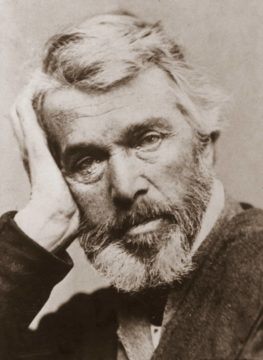 Matthieu Queloz in Aeon:
Matthieu Queloz in Aeon:
‘Ideas, Mr. Carlyle, ideas, nothing but ideas!’ scoffed a hard-headed businessman over dinner with Thomas Carlyle, the Victorian essayist and historian of the French Revolution. The businessman had had enough of Carlyle’s endless droning on about ideas – what do ideas matter anyway? Carlyle shot back: ‘There was once a man called Rousseau who wrote a book containing nothing but ideas. The second edition was bound in the skins of those who laughed at the first.’ Ideas have consequences.
Of course, Carlyle picked an easy case. He was referring to Jean-Jacques Rousseau’s On the Social Contract (1762), a book brimming with incendiary political ideas that went on to fire up the leaders of the French Revolution. But the case for the practical importance of ideas is much harder to make for ideas that are more redolent of idle magniloquence than of revolutionary action. What of grand abstractions, with which our minds are stocked, such as knowledge, truth or justice? These are so entrenched that we can find it difficult to imagine doing without them. Yet it’s even more difficult to pin down just what useful practical difference they make to our lives. What exactly is the point of these ideas?
Unlike ideas of air, food and water that allow us to think about the everyday resources we need to survive, the venerable notions of knowledge, truth or justice don’t obviously cater to practical needs. On the contrary, these exalted ideals draw our gaze away from practical pursuits. They are imbued with grandeur precisely because of their superb indifference to mundane human concerns. Having knowledge is practically useful, but why would we also need the concept of knowledge? The dog who knows where his food is seems fine without the concept of knowledge, so long as he’s not called upon to give a commencement address. And yet the concepts of knowledge, truth or justice appear to have been important enough to emerge across different cultures and endure over the ages. Why, then, did we ever come to think in these terms?
More here.
